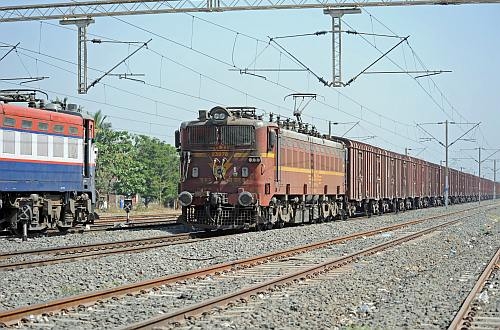A downturn in passenger traffic and low demand from IR's core freight sectors are blamed for the fall in revenue. Savings of Rs 87bn are being sought by the Indian Ministry of Railways to 'neutralise' the revenue shortfall. IR plans a three-pillar strategy to increase revenues, improve efficiency and speed decision making in a bid to improve its financial performance.
IR aims to make reserved accommodation on trains available on demand, eliminate all unmanned level crossings, increase the average speed of express trains to 80km/h and freight to 50km/h and achieve punctuality of 95% by 2020.
It plans to commission 2800km of broad-gauge tracks and the electrification budget is being increased by 50% with a target of electrifying 2000km in 2016-17. Bids for two locomotive factories are being finalised and rolling stock procurement is planned to increase by 30%.
Handheld ticketing terminals are to be tested and passengers will be able to request carriage cleaning via a text message service. A network of 20,000 passenger information screens will be installed at 2000 stations.
IR plans to regain its modal share in the freight market by beginning timetabled intermodal, parcel and special commodity trains on a pilot basis and the tariff structure is set to be recast in a bid to make it more competitive compared with other modes. Lineside logistics parks and warehousing are also planned.
The IR board will be restructured "along business lines" and a new Railway Planning & Investment Organisation will create five-year and 10-year corporate plans. A National Rail Plan aims to integrate railways with other modes. Plastic sleepers will be used on all girder bridges in the future as part of IR's environmental strategy, and 32 stations and 10 rolling stock depots will be fitted with water recycling plants.
"We are faced with two headwinds entirely beyond our control," says railways minister Mr Suresh Prabhakar Prabhu," tepid growth of our economy's core sectors due to the international slowdown and the looming impact of the 7th Pay Commission and increased productivity bonus payouts."
Prabhu called for new ways of funding projects, including public-private partnerships and claimed that every rupee of investment in the railway increases economic output by Rs 5.

